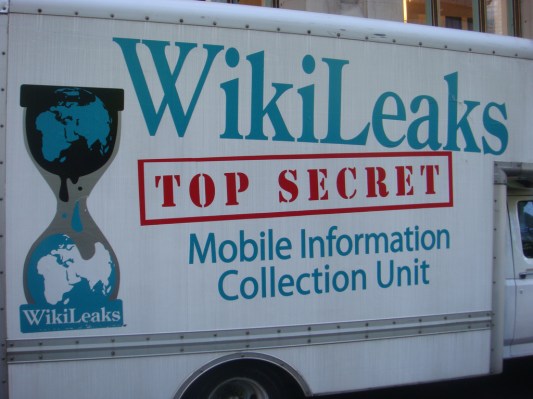As it tweets in lockstep with the President-elect about punishing leakers involved in the Russian hacking scandal, WikiLeaks somehow managed to come up with something even more questionable.
Seemingly out of the blue, the WikiLeaks Task Force suggested building a database of private information on Twitter’s verified users:
In a tweet to Vocativ’s Kevin Collier, WikiLeaks clarified that it doesn’t want to dox verified Twitter users, but instead would like to “develop a metric to understand influence networks based on proximity graphs.”
If those words seem meaningless all strung in a row together like that, that’s probably because they are. It’s a corporate PR word salad served fresh from the organization previously known for its groundbreaking work in government transparency. We’d be a bit more inclined to believe this might be innocuous (LinkedIn for Twitter for WikiLeaks?) if the Task Force account didn’t have such a nasty habit of tweeting libel threats at its perceived enemies.
WikiLeaks did not clarify if the database would be public and has not responded to a request for comment. Considering that the organization’s core mission is making large amounts of information available to the general public, it’s hard to imagine that WikiLeaks is considering this project as an internal tool.
In a statement to TechCrunch, Twitter indicated that this proposal from WikiLeaks could be in violation of its policies. “Posting another person’s private and confidential information is a violation of the Twitter,” a Twitter spokesperson said.
As Twitter’s rule on “Private information posted on Twitter” states:
“Some examples of private and confidential information include:
credit card information
social security or other national identity numbers
addresses or locations that are considered and treated as private
non-public, personal phone numbers
non-public, personal email addresses
images or videos that are considered and treated as private under applicable laws
intimate photos or videos that were taken or distributed without the subject’s consent
Keep in mind that although you may consider certain information to be private, not all postings of such information may be a violation of this policy. We may consider the context and nature of the information posted, local privacy laws, and other case-specific facts when determining if this policy has been violated. For example, if information was previously posted or displayed elsewhere on the Internet prior to being put on Twitter, it may not be a violation of this policy.”
It should be noted that the WikiLeaks Task Force account too is verified, but we’re not sure if they have any kids or where they live or anything. Then again, maybe it just wants to build a really robust CRM? We did not reach out to Salesforce for comment.
